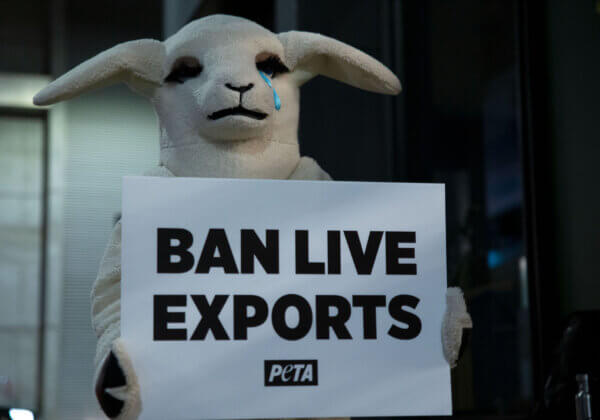Eat Plants – Beat Cancer
Last year, the World Health Organisation (WHO) classified processed meats – such as sausages, bacon, hot dogs, and ham – as carcinogenic.
The WHO findings put processed meats in the same category of cancer risk as cigarettes and asbestos and noted that red meat – including beef, pork, veal, and lamb – is likely carcinogenic as well.
A 2016 study published in the journal Prostate Cancer and Prostatic Diseases revealed that the consumption of foods laden with saturated fat and cholesterol – such as meat, dairy foods, and eggs – make prostate cancer more aggressive.

World Cancer Day
World Cancer Day is 4 February, and this year’s theme places a strong focus on ways we can all help prevent the disease – including by limiting red meat and avoiding processed meat.
According to the WHO, up to 40 per cent of all types of cancer are preventable, and the American Cancer Society reports that one-third of all cancer deaths in the United States can be attributed to nutritional factors.
Cancer Council Australia reports that around one-third of cancer cases in Australia each year – that’s 37,000 cases – could be prevented through lifestyle changes. Of those, at least 7,000 could be directly attributed to low fruit and vegetable intake, low fibre intake, and excess consumption of red meat.
The Importance of Prevention
Few of us would pick up a cigarette without any awareness of the cancer risk, yet we readily consume “cancer sticks” in the form of salami or hot dogs.
The Dietitians Association of Australia states that “you can get all of the nutrients you need from a vegan diet to be healthy” and the American Dietetic Association (now the Academy of Nutrition and Dietetics) confirmed that vegan diets are “healthful, nutritionally adequate, and may provide health benefits in the prevention and treatment of certain diseases”.
The group advises that “[w]ell-planned vegetarian diets are appropriate for individuals during all stages of the life cycle, including pregnancy, lactation, infancy, childhood, and adolescence, and for athletes”.
Research suggests that people who eat vegan foods are between 25 and 50 per cent less likely to develop cancer – and major cancer charities are now recognising this research and advising the public accordingly.
Cure Cancer Australia’s Barbecure website includes information about the cancer-causing properties of meat – as well as the risks of eating food which is burnt or charred, as often happens when meat is barbecued. Many of the recommended recipes on the site are vegan. (Look for those by Emma Roche of PlantPlate.com.)
https://www.facebook.com/plantplate/photos/a.375906375863808.1073741829.307457509375362/877310052390102/?type=3&theater
Eye-Opening Studies Reveal the Power of Plants
Aside from those mentioned above, numerous other studies have found a link between plant-based diets and cancer prevention – including one study that compares the cancer rates of 34,000 vegetarians and meat-eaters. The results showed that those who avoided red meat, fish, and poultry had dramatically lower rates of prostate, bladder, and colon cancer than meat-eaters.
An 11-year German study involving more than 800 vegetarian men found that their cancer rates were less than half of those of the general public, and a 2007 study of more than 35,000 women published in the British Journal of Cancer found that women who ate the most meat had the highest risk of developing breast cancer.
A study comparing the dietary habits of men in 32 countries found that the highest risk factor for prostate-cancer mortality was the consumption of animal-derived foods. By contrast, another study of men diagnosed with prostate cancer showed that a diet rich in fruits, vegetables, and grains can significantly slow the progression of the disease.
Eat Plants – Stay Healthy
People who eat vegan meals receive all the protein, vitamins, and fibre they need, and healthy, plant-based foods are lower in fat and have been shown to result in a lower body mass index.
Higher-fat diets raise oestrogen levels, whereas plant-based diets tend to keep oestrogen at a safe level that doesn’t promote the growth of cancer cells. Moreover, fibre, which is found in most vegan foods, can help our bodies eliminate excess oestrogen, thereby reducing the risk of cancer.
In addition to a lower risk of developing cancer, people who eat plant-based meals also benefit from a lower risk of suffering from diabetes, heart disease, and other maladies.
For those who desire a meaty taste or texture, there are many meat-free alternatives that are delicious and healthy! Vegan sausages, burgers, and bacon have all the flavour of their fleshy counterparts with none of the cholesterol, cruelty to animals, or carcinogenic properties.
Choosing vegan meals also helps farmed animals, who suffer every day in severely crowded transport trucks, on ammonia-filled factory farms, and in terrifying blood-filled abattoirs.






